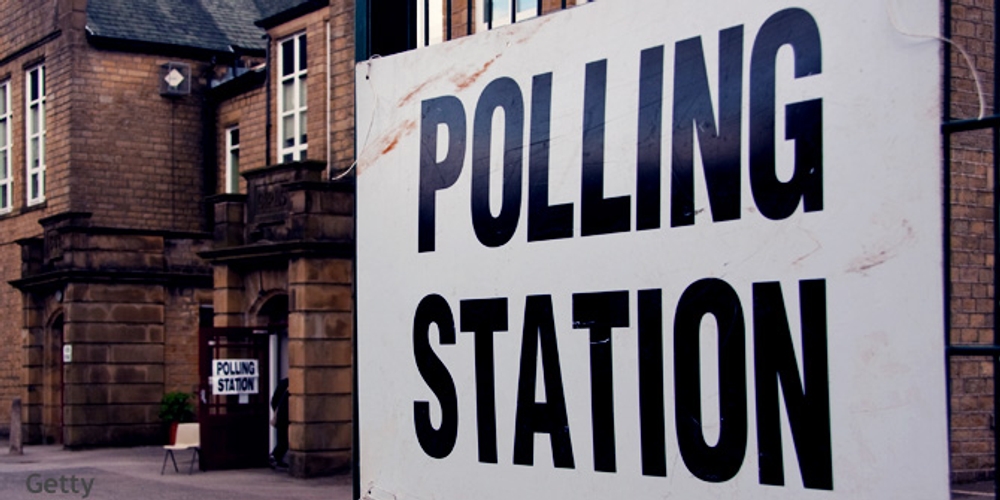Published
- 5 min read
Time To Look Beyond The Ballot Box

The Muslim community needs to show a strong and principled stance, one which goes beyond the ballot box
They say a week is a long time in politics. A week after the local elections in the UK, some things have changed and much remains the same. Monty Panesar wanted to stand as an MP for the Workers Party until someone asked him what the Workers Party stood for, and his political innings matched his batting ability, and he was out without facing his constituents.
Elections are seen as some kind of holy grail of societal existence, the day when school halls are turned into places of political decision-making, when the disenfranchised, destitute, forgotten people can all assert their wrath at the ballot box. Granted, this was not a general election, and those elected will be responsible for filling in potholes and issuing alcohol licenses and the like. However, the theory goes that the power of an X in a square box gives people the ability to show their politicians what they are feeling. Whether they take any heed is a different matter altogether.
The democratic idea dictates that any dissatisfaction with politicians or the system itself should be channeled via the ballot box. If you take this view to be true, then it makes sense why some Muslims in the UK feel that even local elections are enough to channel their anger at the complicity of the British government and their opposition to the crimes being committed in Palestine. By voting for independents or for the likes of the Workers Party, Muslims can inform the establishment that things need to change. The fact that a local candidate canvasses by repeatedly being photographed pointing at a pothole and then makes their victory about Palestine is a different matter, and is then forced to apologise and does so without thinking twice kind of shows the lack of real political backbone.
Results from the local elections saw the Conservatives lose massive ground to Labour and a few independents. A few victories here and there for those canvassing on the Palestine issue did very little for the main parties to take notice.
In the London Mayoral elections, Muslims were told to vote for Sadiq Khan because even though he is a Labour candidate, it is better than getting a Reform candidate in. Sadiq Khan won, and the sun shone a little brighter. This level of political naivety by the Muslim community gives the perception that they are without principle and there to be manipulated. Is it little wonder that despite everything and decades of ‘service’ by some, the major parties simply ignore what Muslims really want?
What exists in Britain is a two-party system, the illusion that there is actual choice, and that any other party or independents can ever influence parliament is fantasy. Examples of this from the recent past are the Liberal Democrats’ coalition with the Tories resulting in the introduction of tuition fees, something they swore they would never do; and then there’s the DUP’s support for Theresa May in exchange for £1 billion in funding for Northern Ireland.
Policies positions on matters such as Palestine are centuries old, hark back to Sykes-Picot and the Balfour declaration. These policies are beyond the pay grade of an average MP, let alone your local councillor.
This leaves the now vogue position that the Muslim voter base abandoning the main parties will make them sit up and take note. The reality is, firstly, there is no single unified Muslim position; stooges of Labour will make every excuse under the sun for their party. Even if all of the Muslim voter base took a unified stance and swathes of independents won seats in the upcoming elections, nothing would change. The major parties would simply write the Muslim community out of the next two or three elections, sit out the political storm of Gaza, and double down on their efforts elsewhere. This would mean inevitably appealing to the far right, thus promising more draconian policies to make up for their loss on the Muslim vote.
So what are we to do? The answer is to move on from thinking politicians and the current system are to do anything but to prop up the status quo. Even if the most well-meaning person were to enter the Democratic system wanting to uproot the current norms, they would be roundly shunned. Jeremy Corbyn is a prime example of this.
This does not mean we do nothing, but as Muslims, we cannot get comfortable with the Western political narrative. It sometimes feels that some in the Muslim community have switched off their obvious intelligence (much greater than mine, probably), got out their pipe and slippers, and intellectually retired at the table of Democracy. Muslims have been quick to abandon the brands which support Zionism, yet they hold onto the hope that very system that has facilitated it for over half a century will come to their rescue.
Muslims who live in the UK contribute to society, yet they have their very own unique challenges and needs which only they understand. So the same unity which is asked of the Muslim community in using their protest vote should be used when dealing with both local and national issues.
Unity should result in direct action outside of the system together to make Muslim views known. With the recent Michaela school prayer ban, imagine the impact if every single Muslim pupil did not attend school the next day across the country. The impact would be greater if all Muslim teachers refused to go to school too. All of this seems far-fetched because of the possible fallout, but in reality, it is far more practical than expecting the major parties to change policy based on voting trends. There is a political reality that some policies are non-negotiable, and anti-Muslim ones fit into that category.